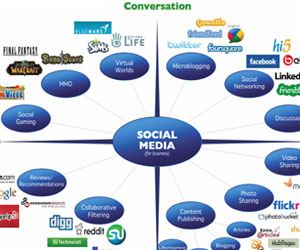


Strategies For Success

In the digital age, online sales generation has become a pivotal aspect of modern business and entrepreneurship. Whether you're a small business owner, a digital marketer, or an e-commerce enthusiast, understanding the strategies and techniques for effectively generating online sales is vital for achieving success in the ever-evolving online marketplace.
The Foundation Of Online Sales Generation
Online sales generation is the process of attracting potential customers to your digital storefront and convincing them to make a purchase. It involves a combination of marketing, customer engagement, and conversion optimization to turn website visitors into paying customers.
Key Strategies For Effective Online Sales Generation
Search Engine Optimization (SEO): A robust SEO strategy can significantly improve your website's visibility in search engine results. By optimizing your website for relevant keywords, you can attract organic traffic from users actively searching for your products or services.
Content Marketing: Creating valuable and relevant content, such as blog posts, articles, videos, or infographics, can establish your authority in your niche and draw in a loyal audience. High-quality content can also rank well in search engines and attract visitors who are more likely to convert.
Social Media Marketing: Leveraging social media platforms is an effective way to connect with your audience and drive online sales. Engage with your followers through interactive posts, promotions, and ads to encourage purchases.
Email Marketing: Building an email list and nurturing your subscribers with tailored content and special offers can be a powerful tool for driving sales. Email marketing campaigns can remind potential customers of your products and entice them to make a purchase.
Pay-Per-Click (PPC) Advertising: PPC advertising, such as Google Ads, allows you to bid for ad placement in search engine results or on various websites. These ads can quickly drive traffic to your website and boost online sales.
Conversion Rate Optimization (CRO): Focusing on CRO involves enhancing your website's design, content, and user experience to encourage visitors to take action. By streamlining the purchase process, you can improve conversion rates and boost sales.
Understanding Your Target Audience
One of the cornerstones of successful online sales generation is knowing your target audience. Conduct thorough market research to understand your potential customers' needs, preferences, and pain points. Tailoring your marketing messages to address these specifics can greatly enhance your online sales strategy.
E-commerce Platforms And User-Friendly Websites
Having an effective e-commerce platform and user-friendly website is crucial for online sales. Your website should be easy to navigate, load quickly, and have a secure and user-friendly checkout process. Invest in a responsive design that adapts to various devices, as many users shop on mobile devices.
Analyzing And Adapting
Continuous analysis and adaptation are key to successful online sales generation. Monitor your website's performance, track key metrics (such as conversion rates and traffic sources), and adjust your strategies accordingly. This iterative process ensures that you stay competitive and relevant in the fast-paced online marketplace.
Online sales generation is both an art and a science, requiring a deep understanding of digital marketing strategies, a thorough understanding of your target audience, and a commitment to ongoing analysis and adaptation. With the right combination of techniques and a strong online presence, businesses and entrepreneurs can harness the vast potential of the internet to drive sales and achieve their financial goals.






Strategies For Success
 3. Data-Driven Insights: An online presence provides valuable insights into customer behavior, preferences, and demographics, enabling data-driven decisions to improve products, services, and marketing strategies.
3. Data-Driven Insights: An online presence provides valuable insights into customer behavior, preferences, and demographics, enabling data-driven decisions to improve products, services, and marketing strategies.
4. Cost-Effective Marketing: Online marketing can be more cost-effective compared to traditional methods, allowing for precise targeting and measurement of campaign effectiveness.
5. Enhanced Customer Experience: A well-managed online marketplace presence can provide a seamless, user-friendly experience, enhancing customer satisfaction and loyalty.
Staying Ahead In A Dynamic Landscape
 2. User-Generated Content
2. User-Generated Content
User-generated content (UGC) is another powerful marketing innovation. Encouraging your customers to create content about your products or services not only builds trust but also generates authentic, relatable content that resonates with potential buyers. Social media platforms, review sites, and dedicated UGC campaigns can help harness the potential of your satisfied customers as brand advocates.
3. Interactive Marketing
Interactive marketing campaigns have the ability to captivate and engage consumers like never before. Interactive content, such as quizzes, polls, and gamified experiences, invites users to actively participate. This not only holds their attention but also provides valuable insights into their preferences and behavior, which can inform your marketing strategies.
4. Video Storytelling
Video content remains a dominant force in marketing, and innovative businesses are taking it to the next level with storytelling. Instead of merely showcasing products, they're crafting narratives that resonate emotionally with the audience. This can be in the form of mini-documentaries, animated stories, or live-streamed events that showcase the brand's journey and values.
5. Artificial Intelligence (AI)
AI is revolutionizing marketing in numerous ways. Chatbots provide instant customer support, while AI-powered algorithms analyze data to predict consumer behavior and preferences. This allows businesses to deliver highly targeted and relevant content to their audience, enhancing the customer experience.
6. Augmented Reality (AR) And Virtual Reality (VR)
AR and VR technologies are transforming the retail industry. Brands are now offering virtual try-ons, allowing customers to see how products will look before making a purchase.
Strategies For Success
 3. Fierce Competition
3. Fierce Competition
The online advertising space is highly competitive, with numerous businesses vying for the attention of the same audience. It can be challenging to stand out amid this fierce competition. To overcome this challenge, marketers should focus on unique value propositions, targeted niche audiences, and creative ad placements to gain a competitive edge.
4. Data Privacy Concerns
Growing concerns about data privacy and regulations like GDPR have made it challenging for marketers to collect and use consumer data for ad targeting. To address this challenge, advertisers must ensure they comply with relevant data protection regulations and focus on transparent data collection and usage practices. They should also seek explicit consent from users when gathering data.
5. Ad Fraud
Ad fraud is a pervasive issue in online advertising, leading to wasted ad spend and skewed performance metrics. Marketers should use ad verification tools and work with reputable ad networks to minimize the impact of ad fraud. Regularly monitoring ad campaigns and analyzing performance data can also help identify and address fraudulent activities.
6. Ad Viewability
Ensuring that ads are viewable to the target audience is a crucial challenge. Marketers should optimize ad placements to enhance viewability, track viewability metrics, and invest in high-impact ad formats to increase the likelihood of ads being seen by users.
7. Mobile Optimization
With the increasing use of mobile devices, advertisers must ensure their ad campaigns are optimized for mobile viewing. Responsive design and mobile-specific ad formats are essential for reaching mobile audiences effectively.
A Path To Success
 Increased Conversions: When your offerings align with what your customers genuinely want, the chances of conversion increase. Customers are more likely to make a purchase when they see value in your products or services.
Increased Conversions: When your offerings align with what your customers genuinely want, the chances of conversion increase. Customers are more likely to make a purchase when they see value in your products or services.
Brand Loyalty: When customers feel that your business understands their interests, they are more likely to remain loyal. This can lead to repeat business and word-of-mouth recommendations.
Effective Marketing: Customer-centric marketing is more effective. By knowing what your audience cares about, you can create campaigns that resonate and connect on a personal level.
How To Align With Customer Interests
Research Your Audience: The first step is to research and understand your target audience. Use market research, surveys, and analytics to gather data on their preferences, behaviors, and pain points.
Create Customer Personas: Develop detailed customer personas based on your research. This helps you visualize and empathize with your ideal customers, making it easier to tailor your strategies.
Tailor Products And Services: Use the insights gained from your research to adapt your products or services to better meet your customers' needs and preferences.
Personalize Marketing Messages: Craft marketing messages that speak directly to your audience's interests, desires, and pain points. Personalization can be done through email marketing, content creation, and even targeted advertising.
How Authenticity Transforms Marketing
 Why Authenticity Matters
Why Authenticity Matters
Builds Trust: Authenticity is the foundation of trust. Customers are more likely to trust and engage with brands that they believe are genuine and have their best interests at heart.
Fosters Customer Loyalty: Authenticity breeds customer loyalty. When customers feel that a brand genuinely cares about them and shares their values, they are more likely to become long-term, loyal customers.
Differentiates From Competitors: In a crowded marketplace, authenticity sets you apart. It helps you stand out among competitors by offering a unique and transparent brand identity.
Drives Engagement: Authentic brands create more meaningful connections with their audience. These connections lead to higher levels of customer engagement, which can result in word-of-mouth recommendations.
Principles Of Authentic Marketing
Consistency: Ensure that your brand message remains consistent across all channels and touchpoints. This consistency builds trust and reinforces your authenticity.
Transparency: Be open and honest about your products, pricing, and business practices. Hiding flaws or engaging in deceptive practices can damage your brand's authenticity.
Storytelling: Share the story of your brand's journey, challenges, and values. Authentic storytelling helps customers relate to your brand on a personal level.
Aligning With Customer Needs
 3. Enhanced Brand Reputation: A reputation for consistently delivering what customers want can turn your brand into a trusted household name. This, in turn, drives positive word-of-mouth marketing.
3. Enhanced Brand Reputation: A reputation for consistently delivering what customers want can turn your brand into a trusted household name. This, in turn, drives positive word-of-mouth marketing.
4. Competitive Advantage: Businesses that excel in customer needs alignment often stand out in their industry. In a crowded marketplace, understanding and meeting customer needs can set you apart from the competition.
Strategies For Aligning With Customer Needs
Conduct Market Research: Start by gathering insights through market research, surveys, and data analysis. Understand your target audience's preferences, pain points, and behaviors.
Develop Customer Personas: Create detailed customer personas that represent various segments of your audience. This helps you visualize and empathize with your ideal customers.
Customer Feedback: Actively seek feedback from your customers. Use their suggestions and critiques to improve your products, services, and customer experience.
Adapt And Innovate: Continuously adapt to changing customer needs. Invest in innovation to stay ahead of emerging trends and evolving preferences.
Personalized Marketing: Craft personalized marketing messages and offers that resonate with your audience's specific needs and desires. Personalization is a powerful tool for engagement.
Building Connections In The Digital Age
 The Importance Of Content Marketing
The Importance Of Content Marketing
Building Trust: Content marketing fosters trust with your audience. By consistently providing valuable information, you establish yourself as an authority in your industry and build credibility.
Educating The Audience: It allows you to educate your audience about your products, services, and industry. Informed customers are more likely to make confident purchase decisions.
Engaging And Entertaining: Good content captivates and entertains, keeping the audience engaged. This engagement often leads to longer-lasting relationships with customers.
Search Engine Optimization (SEO): High-quality content is favored by search engines, leading to better search rankings. This can increase the visibility of your business online.
Sharable Content: Well-crafted content is more likely to be shared on social media and other platforms. This helps to increase your reach and brand exposure.
Key Components Of Content Marketing
Content Strategy: Begin by developing a content strategy that outlines your goals, target audience, content types, and publishing schedule.
 Search Engine Optimization (SEO): SEO is the cornerstone of any successful online marketing strategy. It involves optimizing your website and content to rank higher in search engine results. By using relevant keywords, high-quality content, and optimizing technical aspects of your site, you can improve your website's visibility and attract organic traffic. SEO is a long-term strategy that, when executed effectively, can establish your brand as an authority in your industry.
Search Engine Optimization (SEO): SEO is the cornerstone of any successful online marketing strategy. It involves optimizing your website and content to rank higher in search engine results. By using relevant keywords, high-quality content, and optimizing technical aspects of your site, you can improve your website's visibility and attract organic traffic. SEO is a long-term strategy that, when executed effectively, can establish your brand as an authority in your industry.
Content Marketing: Content is king in the world of internet marketing. Creating valuable, informative, and engaging content is essential for attracting and retaining an online audience. Blog posts, articles, videos, infographics, and more can showcase your expertise and provide real value to your target audience.
Social Media Marketing: Social media platforms offer an excellent opportunity to connect with your audience on a more personal level. Establish a presence on platforms like Facebook, Twitter, Instagram, and LinkedIn, and use them to share your content, engage with your followers, and build a loyal community. Social media marketing can help you humanize your brand and create meaningful relationships with your customers.
Email Marketing: Don't underestimate the power of email marketing. It's a direct way to reach your audience with personalized messages and offers. Use email campaigns to nurture leads, convert prospects into customers, and keep existing clients engaged and informed.